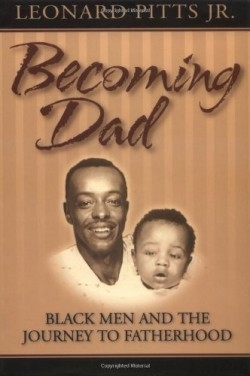Becoming Dad
Black Men and the Journey to Fatherhood
Many of the statistics are well known and have been bantered around as evidence of a variety of problems. Nevertheless they remain shocking: one third of all black men in their twenties are either in jail, on parole, or on probation; sixty percent of all black children grow up in a one parent household. Three-time National Headliner Award winning syndicated columnist, Pitts argues that the most immediate problem facing African-Americans is the failure of black fathers in rearing their children. Becoming a father is easy, as he points out, requiring little more than a healthy sperm count, but becoming a dad, with the respect and love implied by that term, is a lifelong process and commitment. In this book, Pitts offers a critique of absent, neglectful and abusive fathers as well as advice for those who would like to do better.
Pitts shares his own story of growing up with an abusive father and the consequences later in his life, from the trivial embarrassment of being unable to knot a necktie to the more substantial fears of failing his own children. In dozens of conversations with other black men, Pitts hears similar tales of fatherly abuse and abandonment. Pitts calls for black men to shoulder the burden of fatherhood.
As in most books of this nature, the stories, while powerful and moving, at times seem to undermine Pitts? thesis. Despite their drunken father, Pitts and his brother grew up to become successful adults. Despite Pitts? efforts to be a good dad, he has one child who has apparently “gone bad.” No one can doubt the general validity of his point, but solutions to complex problems such as this inevitably seem oversimplified when presented as a dozen or so tips to fathers.
Pitts? critique is particularly insightful, however, when he discusses the role race plays for black fathers. While recognizing the continuing existence of overt and institutionalized racism in the United States and its demoralizing impact, Pitts nevertheless ruthlessly takes to task those men who would blame it for their poor performance as fathers. Pitts emphasizes, above all, personal responsibility. Also perceptive are Pitts? comments on white America and its responsibility. He correctly points out that if statistics such as those cited above were true for white America that there would be a massive national effort to resolve the problem. Pitts argues, quite correctly, that a problem for Black America is a problem for all of America and that White America has a role to play in solving this problem.
Reviewed by
Erik Bledsoe
Disclosure: This article is not an endorsement, but a review. The publisher of this book provided free copies of the book to have their book reviewed by a professional reviewer. No fee was paid by the publisher for this review. Foreword Reviews only recommends books that we love. Foreword Magazine, Inc. is disclosing this in accordance with the Federal Trade Commission’s 16 CFR, Part 255.

